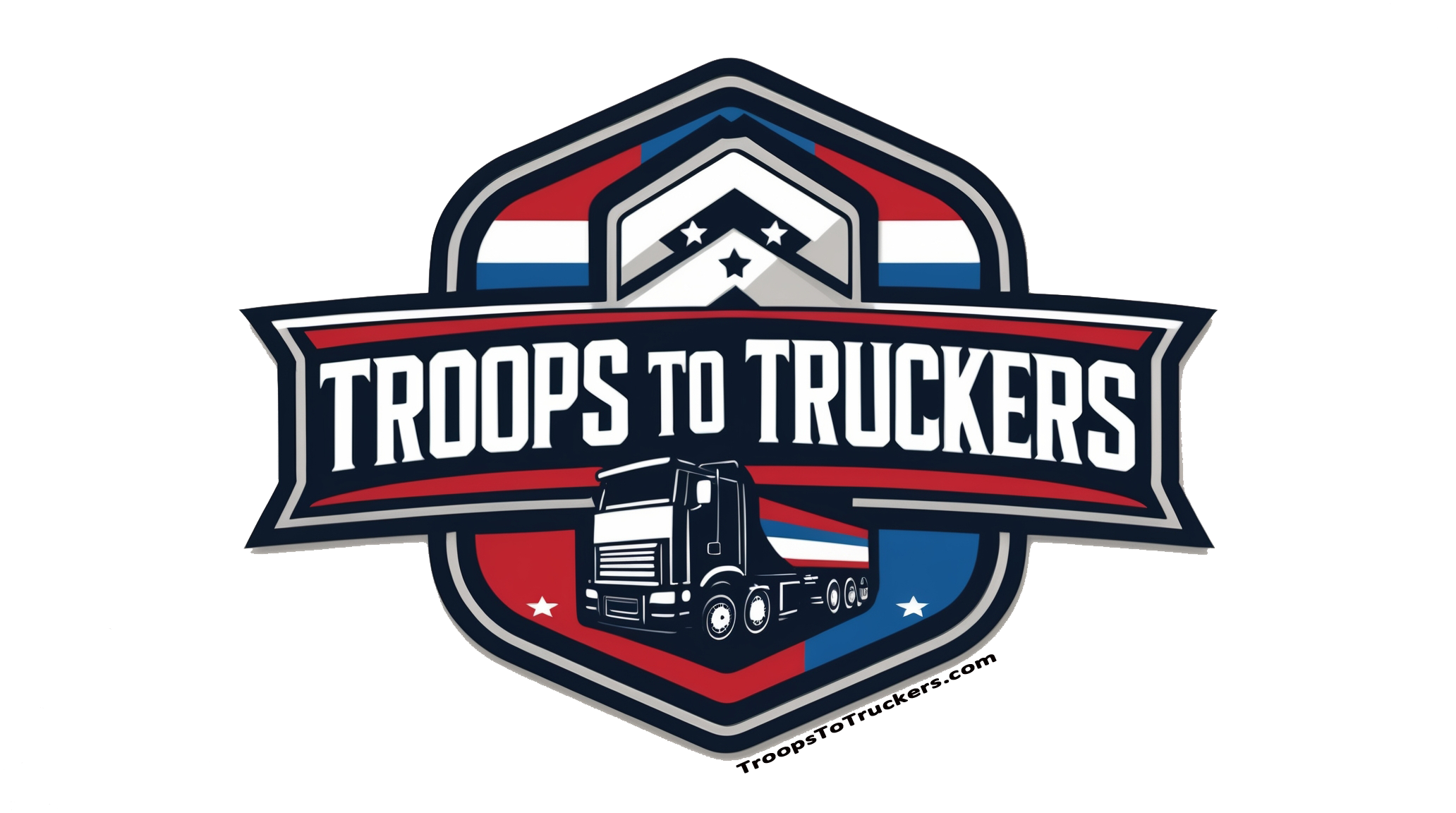 Starting a career in commercial trucking is an exciting venture, but like any profession, it requires dedication, patience, and a willingness to learn. Truck driving isn’t just about getting a Commercial Driver’s License (CDL) and hitting the road; it’s about building a foundation of skills, experience, and knowledge that will make you a safe, reliable, and successful driver.
Starting a career in commercial trucking is an exciting venture, but like any profession, it requires dedication, patience, and a willingness to learn. Truck driving isn’t just about getting a Commercial Driver’s License (CDL) and hitting the road; it’s about building a foundation of skills, experience, and knowledge that will make you a safe, reliable, and successful driver.
In this chapter, we’ll explore practical advice for new drivers on how to gain valuable experience, learn from seasoned professionals, handle challenging loads, and navigate a range of routes. With the right approach, you can set yourself up for long-term success in the trucking industry.
Start Small, Build Gradually
As a new driver, it can be tempting to jump right into long-haul, high-paying routes. However, it’s often better to start with shorter, more manageable routes. These types of trips allow you to get a feel for the road, develop your driving skills, and familiarize yourself with the vehicle, all without the pressure of extended time away from home.
Starting with local or regional routes also lets you ease into the lifestyle and adapt to the unique demands of trucking. These initial experiences are crucial in building your confidence and laying a strong foundation for more challenging routes later on.
Embrace Every Opportunity to Learn
Learning is an ongoing process in trucking, and each trip presents new opportunities to improve. Pay attention to every aspect of your job, from pre-trip inspections to navigating busy highways and handling the paperwork involved. Small details, like keeping a clean cab and maintaining a well-organized schedule, may seem minor but can make a big difference over time.
Consider keeping a journal to track your experiences, noting any challenges you faced, how you dealt with them, and what you learned in the process. Reflecting on these experiences can help you improve and avoid repeating mistakes.
Find a Mentor or Learn from Experienced Drivers
One of the best ways to grow as a new driver is to learn from those who have been on the road for years. Experienced drivers have a wealth of knowledge to share, from tips on navigating tough routes to advice on truck maintenance and safety practices.
Don’t be afraid to ask questions or seek advice. Many seasoned drivers enjoy mentoring newcomers and passing on their knowledge. If possible, find a mentor or a trusted colleague within your company who can guide you through the learning process.
When you’re on the road, observe other drivers. Take note of how they handle their trucks, especially in challenging situations like tight parking spaces, heavy traffic, or adverse weather conditions.
Pay attention to their professionalism, patience, and problem-solving skills. Over time, you’ll incorporate these lessons into your own driving style.
Take Challenging Loads as Learning Opportunities
One way to build skills and gain experience is by taking on different types of loads. Each load presents unique challenges and requires specific handling techniques. For example, refrigerated loads demand careful temperature monitoring, while hazardous materials require special certifications and adherence to strict safety protocols. Taking on challenging loads allows you to diversify your skill set and make yourself a more versatile and valuable driver.
Of course, you should only take on these loads if you feel ready and have the necessary training. Don’t rush into handling specialized freight before you’re prepared. When you are ready, consider each challenging load as an opportunity to learn and improve.
By gaining experience with different types of freight, you’ll expand your capabilities and boost your marketability within the industry.
Practice Route Planning and Navigation
Navigation is a crucial skill for any truck driver, and proper route planning can make or break a trip. As a new driver, take the time to carefully plan your routes before each trip.
Familiarize yourself with the highways, local roads, and any potential obstacles along the way, such as low bridges or weight-restricted roads. Use GPS and map applications designed specifically for trucks, but don’t rely on them completely; having a physical map as a backup is always a good idea.
In addition to planning your route, try to anticipate potential issues like traffic congestion or road closures. Learning to navigate around these obstacles will improve your efficiency and reduce stress. With time and practice, you’ll develop a strong sense of direction and the ability to plan routes quickly and effectively.
Get Comfortable with Different Terrains and Weather Conditions
One of the best ways to build experience as a driver is to expose yourself to diverse driving conditions. Different terrains—like mountains, deserts, and urban areas—require different driving techniques.
For instance, mountain driving may require more skill with braking and gear shifting, while urban driving requires greater focus on traffic and pedestrian awareness.
Similarly, driving in various weather conditions will enhance your skills and confidence. Practice driving in rain, snow, fog, and extreme heat.
Each of these conditions presents unique challenges, and learning how to handle them safely is essential for a long-lasting career in trucking. If you have the chance, work with an experienced driver to gain hands-on guidance in these situations.
Prioritize Safety and Compliance
Safety is the cornerstone of a successful driving career. As a new driver, it’s essential to make safety a top priority. Always conduct thorough pre-trip and post-trip inspections to ensure your vehicle is in proper working order. Follow all federal and state regulations, including hours-of-service rules, speed limits, and weight restrictions.
Remember, safety is not just about protecting yourself; it’s about safeguarding others on the road and maintaining a good reputation. Adhering to safety protocols and maintaining a clean driving record will set you apart as a reliable and trustworthy driver.
Develop Strong Communication Skills
Communication is an often-overlooked aspect of trucking but is vital for a successful career. You’ll need to communicate with dispatchers, customers, and other drivers regularly. Learning to communicate clearly and professionally will help you avoid misunderstandings, stay organized, and maintain positive relationships with clients and coworkers. Good communication skills are especially important when dealing with difficult situations, such as delays or unexpected changes in plans.
Focus on Building Endurance and Stamina
Trucking requires both physical and mental stamina. Long hours on the road can be exhausting, so it’s important to build endurance over time. Take regular breaks, stay hydrated, and eat balanced meals to keep your energy levels up.
Additionally, practice mindfulness or stress-relief techniques to stay focused and relaxed on long trips. Over time, you’ll build the endurance needed to handle lengthy hauls and demanding schedules.
Stay Committed to Continuous Improvement
The trucking industry is constantly evolving, with new technology, regulations, and practices emerging regularly. As a driver, staying informed and open to learning will help you grow in your career.
Attend workshops, take additional certifications, and keep up with industry news. The more you invest in your professional development, the more valuable you become as a driver.
Gaining experience in the trucking industry is a journey, not a destination. It requires patience, persistence, and a commitment to personal and professional growth. By starting small, learning from others, and embracing challenges, you’ll gradually build a strong foundation of skills that will set you apart as a safe, reliable, and skilled CDL driver.
As you progress, each new experience on the road will add to your knowledge and confidence, helping you become a respected member of the trucking community.
Remember, every mile is an opportunity to learn and grow, and with the right approach, you can build a successful and rewarding career in this dynamic industry.




Comments are closed